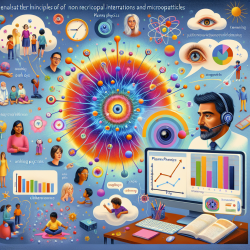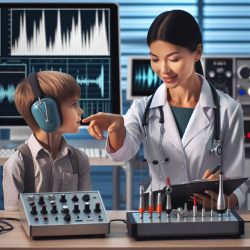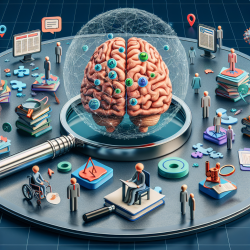At TinyEYE, we are dedicated to improving the outcomes for children through data-driven, evidence-based online therapy services. In this blog post, we will explore insights from a fascinating research study titled Experimental study of the nonreciprocal effective interactions between microparticles in an anisotropic plasma and discuss how these findings can be applied to enhance speech therapy practices.
The study delves into the complex world of microparticles in plasma, revealing groundbreaking insights about nonreciprocal interactions. These interactions, where forces between particles are not equal and opposite, offer a unique perspective that can be applied to our therapy sessions.
Here are the key takeaways from the research and how they can be applied in practice:
- Understanding Nonreciprocal Interactions: The study found that even small changes in the charge of one particle can significantly alter the interaction forces between particles. In therapy, this highlights the importance of recognizing and adapting to subtle changes in a child's behavior or response during sessions.
- Importance of Environment: The research emphasized that the medium in which particles are suspended affects their interactions. Similarly, the environment in which therapy sessions are conducted (whether online or in-person) can influence a child's engagement and progress. Creating a supportive and conducive environment is crucial.
- Data-Driven Adjustments: The experimental method used in the study relied on analyzing spectral densities of random processes. In therapy, continuously monitoring and analyzing data on a child's progress allows for real-time adjustments to therapy plans, ensuring the most effective interventions.
- Customizing Interventions: Just as the interactions between microparticles vary based on specific conditions, therapy interventions should be tailored to meet the unique needs of each child. Personalized approaches are more likely to yield positive outcomes.
By incorporating these principles into your therapy sessions, you can enhance your ability to respond to each child's unique needs and optimize their progress. Remember, even the smallest adjustments can lead to significant improvements in outcomes.
To read the original research paper, please follow this link: Experimental study of the nonreciprocal effective interactions between microparticles in an anisotropic plasma.










